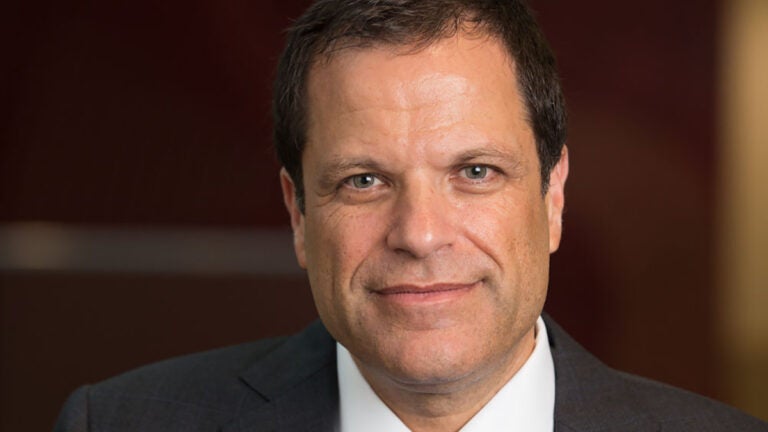
Dana Goldman has been named dean of the USC Price School of Public Policy. (Photo/Tracy Boulian + David Ahntholz)
New USC Price dean shares how better policies can transform people’s lives
“I want to see them change the world for the better,” says Dana Goldman, who on Tuesday will be installed as head of the public policy school.
Dana Goldman will be installed Tuesday as dean of the USC Price School of Public Policy, where he will hold the C. Erwin and Ione L. Piper Dean’s Chair. A Distinguished Professor of Public Policy, Pharmacy and Economics, Goldman directed the USC Schaeffer Center for Health Policy & Economics for 12 years. The center’s research has guided national policy discussions on Medicare reform, drug prices, the Affordable Care Act, Alzheimer’s disease and dementia, and health disparities. USC News sat down with Goldman to learn more about what motivates him.
When you were a kid, what did you want to be when you grew up?
An actuary. At that time, most kids wanted to be astronauts or the president. But I loved math; it was like solving puzzles. Someone told me that actuaries got paid well to do math for a living, and I decided that was my calling.
What was the first economics problem or question that made you realize this was your life’s work?
I took an interest in economics in the early 1980s. The federal government was starting to accumulate a huge amount of debt. Cities like New York had declared bankruptcy, and mortgage rates and oil prices were soaring. Suddenly, economists like former Federal Reserve Chair Paul Volcker — who helped us emerge from this stagflation — were national heroes. I wanted to learn more.
What are you most excited about in your new role as dean of the USC Price School?
Inspiring students to advocate for policy change — when the evidence supports it. We need smarter policies, and this also sometimes means accepting that we were wrong.
What are the most important questions/challenges you want to see USC Price students tackle in the next decade?
The list is unfortunately so long: climate, housing, health care, economic opportunity and social inequality. But our students are making a difference. We need to give them a toolkit to change the world in an era where technology is transforming the data available and the way we communicate.
You recently described a “drug” that’s been extensively studied, reduces the risk for cancer and heart disease, and may be protective for Alzheimer’s disease. You were referring to exercise. Why isn’t the American health care system widely prescribing it?
We have tilted the playing field in America to treat people when they are sick. If I discover a new drug to treat a disease, I can get the government or insurers to pay for it. But if I figure out a way to prevent that disease, no one wants to pay. Perhaps the best thing we could do for population health is to get everyone to take a 30-minute walk. If I develop a pill that mimics these effects, I will get rich. We need to figure out how to reward people for low-tech, not high-tech, prevention.
Have you personally experienced — in your own life — anything that has illuminated the need to innovate in health care?
I was diagnosed with type 1 diabetes at age 29. At that time, I said, ‘If I just take care of myself for the next 20 years, there will be a cure.’ I’ve now been taking care of myself for more than 20 years and there is no cure. This demonstrates how long it takes to innovate medical care. I’d really like to live to see one.
You have said medicine can be more just and effective. What are some examples of how it isn’t?
I spent a lot of time studying HIV and other infectious diseases. We saw that affluent males were far more likely to get access to novel treatment for HIV than women or those who were at risk due to substance abuse. COVID-19 has also brought these kinds of inequities into sharp relief. We should have been distributing vaccines in grocery stores, churches, barbershops and beauty salons — the places where the populations most at risk were being exposed.
How has the politicization of the COVID-19 pandemic thrown a wrench into how health policy experts would typically approach the situation?
Health care delivery has never been a partisan issue, although health care financing is. That has changed. We need to learn how to communicate the facts in a way that drowns out misinformation. It would help if we didn’t scold people.
What accomplishment are you most proud of?
Many people I mentored have gone on to do better, more important accomplishments than I ever achieved. Nothing could make me prouder.
What are you reading right now?
I just finished Hidden Valley Road: Inside the Mind of an American Family — a gift from a staff member. It is a difficult story of how mental illness can ravage not only the person but everyone around them — and a poignant reminder of why we need better policies and treatments.
Tell us a little bit about your family.
They’re amazing, and they put up with a lot!
What’s something you like to do in L.A.?
I have hiked just about everywhere. It is remarkable to me that an hour away from our huge metropolis you can be alone with your thoughts in the mountains and sunshine.



